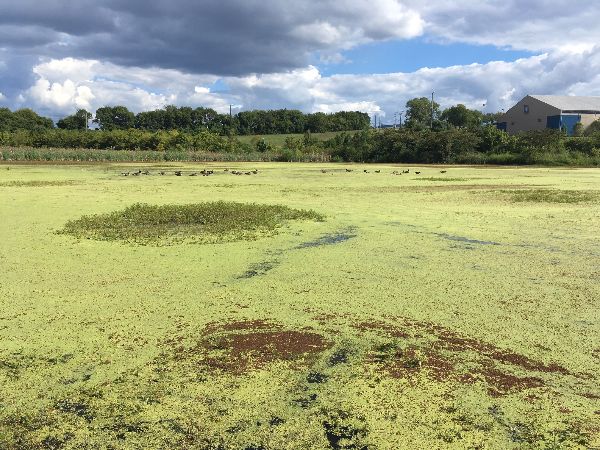Nashville, TN (TN Tribune)– EnBiorganic Technologies (EBT), innovator and provider of patented turn-key autonomous systems for the natural, biological treatment of wastewater will be launching a pilot program in August 2021 in a wetland area on the Tennessee State University campus at Nashville, TN. The purpose of the pilot is to demonstrate the effectiveness of EnBiorganic’s EBS-Di for the remediation of harmful algae bloom (HAB) in a 30-acre area with three individual pockets of water blocked by beaver dams which are susceptible to HAB outbreaks in the fall and spring which completely pollute the waterbodies. The HAB has damaged the ecosystem, often poisoning wildlife with Microcystin.
The Tennessee Department Environment and Conservation (the State’s water regulators) determined that the TSU site to be an excellent test location as the pocketed portions of the wetland will allow for natural control in the study. The size of the area is ideal for a single EBS-Di unit and the University has compiled years of data reporting on the HAB issues of this wetland and its effect on the ecosystem, which will provide a quality baseline of data for comparison study.
“The EBS-Di has previously proven its effectiveness in removing HAB during other performance trials so we are confident that during this study, we will bring the water body back into balance, eliminate what HAB and cyanotoxins are present and prevent blooms from recurring,” shares Darrell Liski, CEO of EnBiorganic Technologies.
Environmental impact and efficiency of the process will be measured with particular attention to the effects of EBT’s proprietary non-toxic, non-pathogenic, and non-GMO microbes which exist in nature already on the HAB and its effectiveness to drastically improve the quality of life in the entire ecosystem.


